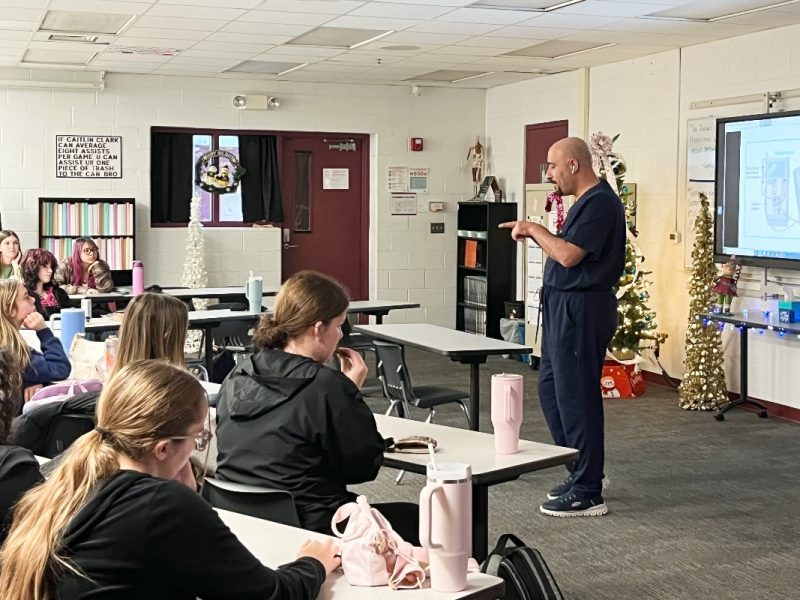Partner Partner Content Michigan women bust stereotypes, find success in Professional Trades
In Michigan, there will be an estimated 47,000 openings annually through 2026 in the Professional Trades. These are the stories of three Michigan women who have found rewarding careers in these sometimes-stigmatized jobs.
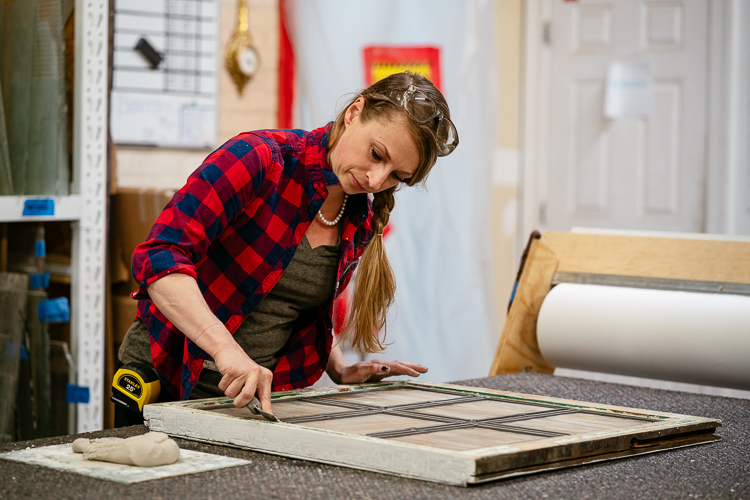
The Talent and Economic Development Department of Michigan (Ted) is energizing a statewide dialogue about Michigan’s talent gap. Michigan will have more than 811,000 high-demand, high-wage career openings to fill through 2024 in fields like energy, information technology, computer science, healthcare, manufacturing, and other business and Professional Trades fields.
This is the second installment in a six-part series sponsored by Ted.
Amy Swift has always been fascinated with buildings and how they’re put together. But when she told her mother she wanted to take a shop class in high school, her mother told her shop class was “for dumb boys” and that, as a smart girl, she was going to college.
Still, Swift insisted on following her passion. Today she’s the owner of Detroit construction and restoration company Building Hugger. But as a woman attempting to enter the Professional Trades, she was fighting two stigmas, she says.
“The first is that women have no place in Professional Trades, and the other is that trades are for people who don’t have academic skills,” Swift says. “That’s totally wrong as well. (It takes smarts) to know how to trim and cut and measure and use geometry and trigonometry in order to build something.”
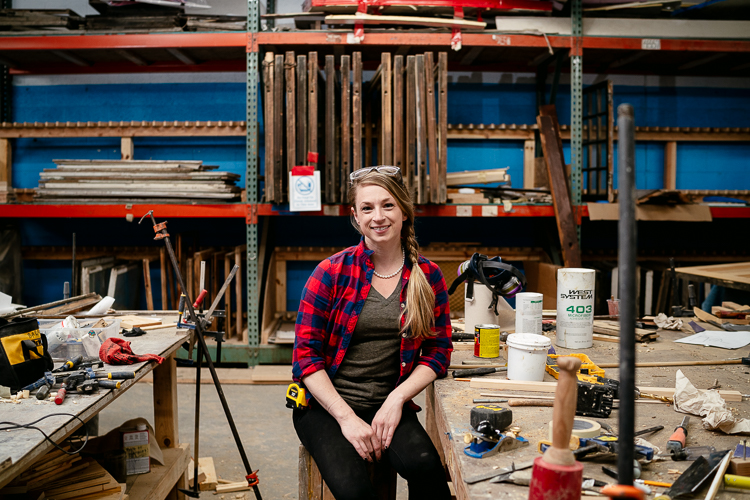
Swift is one of numerous Michigan women who have found lucrative, enjoyable careers in the Professional Trades. In Michigan, there will be an estimated 47,000 openings annually through 2026 in the Professional Trades. These include traditional manufacturing and building trades, but also careers such as computer numerical control (CNC) technicians, cardiovascular technologists and massage therapists. These are the stories of three Michigan women who are busting gender stereotypes in the field.
“Interest and attitude”
After completing a bachelor’s degree in architecture and a master’s in historic preservation, Swift moved back to southeast Michigan and began doing occasional tax credit consulting. She found herself telling developers they should reuse the windows from buildings they’d bought on auction.
When developers asked her who to call to restore old windows, she didn’t have an answer, but she realized she could create one. Swift took a two-week hands-on course in window restoration and started Building Hugger in 2012. She hired her first employee three months in and her staff has since grown to 10.
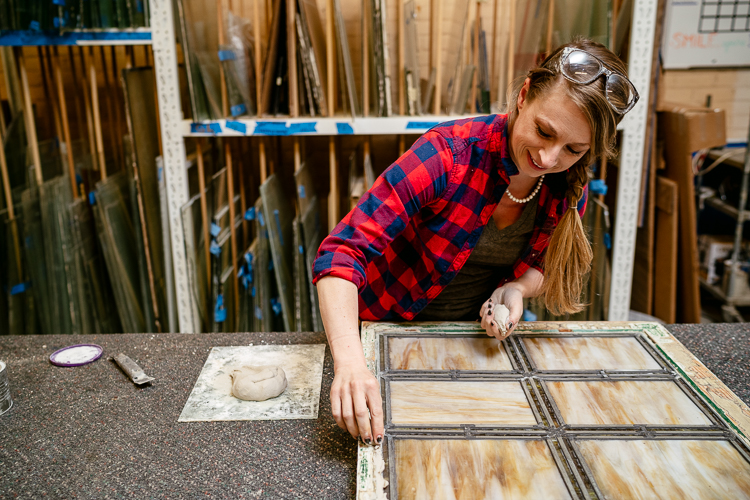
Swift says the Professional Trades might be a good choice for anyone who wants a well-paid job outside the usual four-year college degree route. The median income for a career in Professional Trades in Michigan is a healthy $54,000. And because most of these jobs don’t require advanced degrees, every paycheck stays with you. Swift says because there are so few places you can train specifically to do window restoration, she hires “based on interest and attitude.”
“There’s lots of hands-on learning, and it’s a field (in which) you can get paid for doing (an apprenticeship), as opposed to the college route that leaves you indebted,” she says.
Swift says she comes from “a long line of sassy little ladies” but realizes that not everyone has the gumption to push back against resistance. However, women who do have the “chutzpah” are needed to break those barriers.
“Women should do whatever the heck they want to do,” she says. “If, in your bones, you feel it is part of what would make you happy, you should do it.”
“It was the best choice I could have made”
When Grace Trudell was growing up, she didn’t just play with dolls; she built dollhouses and made clothes for them. From an early age, she was fascinated with what made things work.
However, she bought into a lot of the stereotypes about the Professional Trades and didn’t consider them as a career until well into adulthood.
“I thought working construction didn’t require much schooling or that anybody could do it, but that’s just not the case,” the Detroit resident says. “It’s so math-intensive. It’s a constant learning experience.”
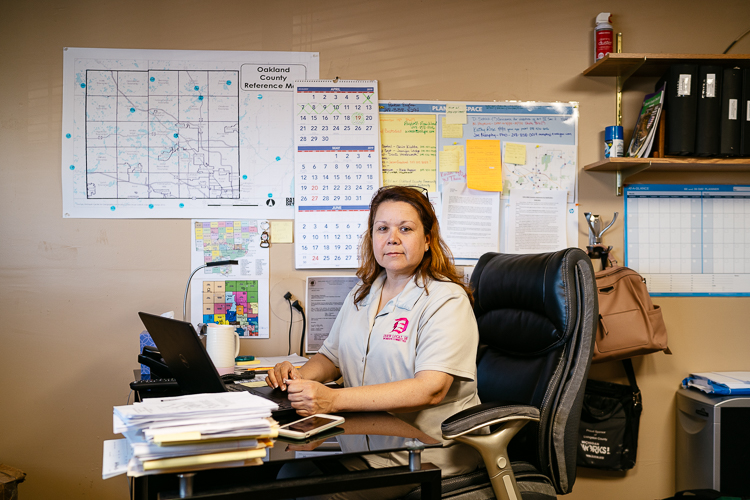
After working as a teacher for several years, Trudeau was intrigued when her brother-in-law, a cement mason instructor, was featured in a booklet about the Professional Trades. Trudell looked through the other jobs in the booklet to see which ones made the most money and which ones she thought she’d be good at. She settled on becoming an electrician.
“It was the best choice I could have made,” she says.
Currently Trudell is a business representative for IBEW, but she worked her way up to that position after many years as an electrician. She says she particularly enjoyed the diversity of her work as an apprentice electrician, doing a variety of jobs for a variety of contractors.
These days, her job involves going to new construction sites to see how things are running and making sure everyone is safe. She also handles grievances and union member issues and enforces contracts.
Additionally, she runs her union’s women’s committee, focused on recruiting and retaining women and making sure they have the resources to overcome any hurdles they encounter as women in an industry that is still male-dominated. She also travels to job fairs where she talks to students about careers in the Professional Trades.
“I often pull girls off to the side and ask, ‘Hey, have you ever considered a career in construction as an electrician? It’s something you should consider. There’s no debt, and it’s a great opportunity to work with your hands,'” she says.
“The stigma needs to be turned around”
While she was still in grade school, Donna Russell-Kuhr worked in the shop of her father’s metal stamping and assemblies business, PTM Corp., manually popping foam insulators onto metal studs as they came down a conveyor belt. She says adults were sometimes surprised that an 11-year-old girl was working with large pieces of semi-automated equipment, but her father made sure she was well-prepared.
“He did safety training with me, and it must have been super effective because I still have all my fingers today,” she jokes.
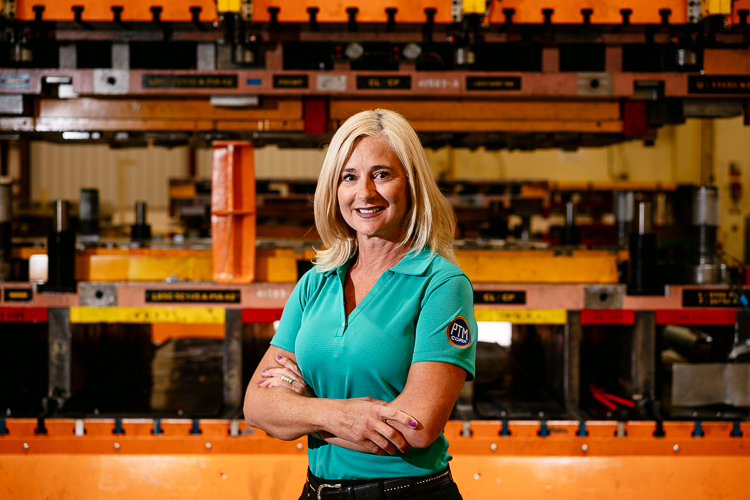
As she grew up, Russell-Kuhr did everything from cleaning toilets to managing payroll at PTM. Today, she says all those experiences were great training to be CEO of the Fair Haven-based company, which she inherited from her dad.
“The best presidents and CEOs are ones that have worked their way through the ranks,” the Ira Township resident says. “You understand those issues that happen out on the floor.”
For all four years of high school, Russell-Kuhr was the only girl in her metal shop and drafting classes. After she graduated, PTM had an opportunity to work directly with Chrysler, but that meant the company had to have a certified quality system. Nobody else in the facility wanted to do it, so Russell-Kuhr’s father told her she would be the new quality manager. She took the necessary classes and began benchmarking with PTM’s larger customers, asking how they handled similar quality issues.
Growing up in the manufacturing world of the ’70s and ’80s, Russell-Kuhr says she had to “adapt to a man’s world, talk like a man, know man things, and be outspoken.” But today, she says she’s glad her 19-year-old daughter takes it for granted that “we’re all equal.”
“Women shouldn’t be treated any differently, but unfortunately, there are a lot of things women had to put up with for the last 35 or 40 years,” Russell-Kuhr says.
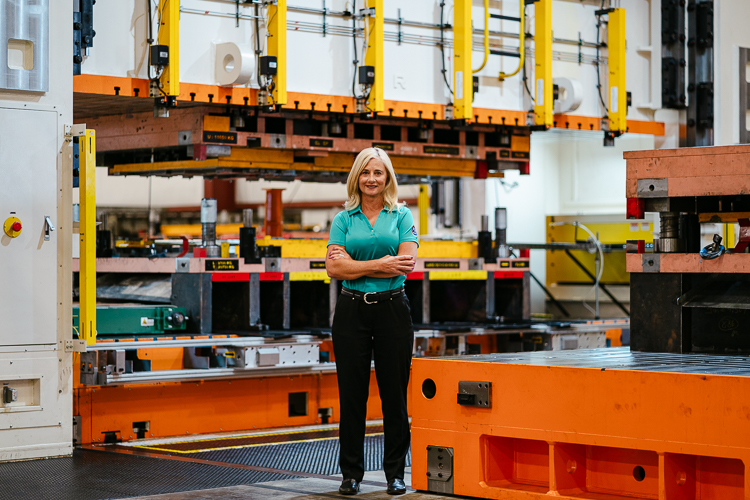
Russell-Kuhr now has four managers who report to her directly, overseeing 300 employees. She says “the time is prime and ripe” for women to increase diversity at all levels of Professional Trades, particularly manufacturing.
When Russell-Kuhr’s father was a tool and die maker in the 1960s, she says it was a “very respected trade.” But a stigma developed over time, and parents started steering their children away from the Professional Trades.
“Because of that, this country has suffered, and we have a deficit of skilled workers,” she says. “The stigma needs to be turned around. Skilled trades are a form of higher education, just a different journey. It’s a very honorable industry, and the pay and benefits are excellent.”
Sarah Rigg is a freelance writer and editor in Ypsilanti Township and the project manager of On the Ground Ypsilanti. She has served as innovation and jobs/development news writer for Concentrate since early 2017 and is an occasional contributor to Driven. You may reach her at sarahrigg1@gmail.com.
All photos by Nick Hagen.



